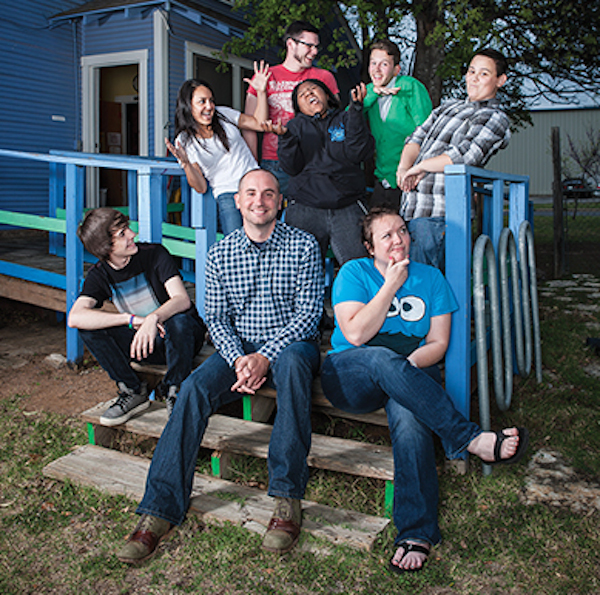A.J. Guerrero has been an intern with the Texas Gay Straight Alliance Network for three years. In the slow- moving world of politics and policies, that’s practically a blink of an eye. But in that time, there’s already been a noticeable shift in Texas schools when it comes to acknowledging and supporting LGBT students, thanks to a growing awareness of, and impatience with, the kinds of intolerance that the community has faced.
“Overall, because of the nationwide attention we’re getting about bullying in schools, and support from celebrities and major political powers in office right now, I think that more people are paying attention about what’s going on with LGBT youth,” Guerrero said of the current atmosphere. “It’s a really good thing.”
But, she cautioned, there’s still a lot of work to be done. And that’s where organizations like the Texas GSA Network come in.
While it is technically a program out of OutYouth, the Texas GSA Network has its own leadership. Most of that leadership is young—under 25—and as such, it’s a truly youth-directed statewide program. Its mission is to unite the state’s existing Gay Straight Alliance student clubs through peer support and training, while also offering guidance to schools and students looking to set up new GSA’s. Guerrero estimates there are currently about 200 GSA clubs statewide.
Guerrero herself became involved through the GSA’s youth activism camp while she was a high school student and GSA president in Austin (she’s currently a student at the University of North Texas, where she acts as the Texas GSA Network’s North Texas regional intern). The youth camps are geared for younger high school students—and even recently some middle school students—and teach community and coalition building. During their time at the camp, students learn how to sustain and strengthen their GSA’s, participate in anti-oppression training, discuss queer history and the history of queer minorities, and hear from representatives of the American Civil Liberties Union about their legal rights as students.
Guerrero said that the last part comes in handy in many schools with administrations that are hostile to GSA clubs. For high-school age students who sometimes do not have the support of parents and peers, that’s a heady challenge, and it’s where the Texas GSA Network can offer much-needed guidance.
In Flour Buff ISD, in Corpus Christi, just such a scenario played out in 2011. The district rejected a student’s attempt to form a GSA club. The ACLU stepped in, pointing out that other extracurricular clubs have been allowed in the district. Under the Equal Access Act, schools are not allowed to shut down student-led extracurricular activities based on religious, philosophical or political leanings.
The district’s trustees ultimately voted to allow the club to stay.
“In terms of school administrations, we have come across challenges trying to set up GSA’s or keep them open,” Guerrero said. “Because of the challenges youth [in those schools] have to face whenever they have to fight to keep this organization open, it brings on more stress to them, not just because of their peers, but from administrators not being supportive. I have also talked to parents who are not supportive of their youth being in GSA clubs.”
Aubrey Wilkerson, executive director of OutYouth, said that when asked what worries them the most, LGBT youth frequently answered that being outed and safety were top concerns; their straight peers often answered that it was an upcoming test.
Wilkerson echoed Guerrero’s observation that more and more students are able to successfully fight to form GSA clubs in Texas.
“We’ve been able to assist clubs that are having problems getting started,” he continued. “There’s just more coverage. I presented last night to a group in Georgetown. It is a slow change, we all want it to get faster, but things are getting a little better. And I think GSA has something to do with that.”




































